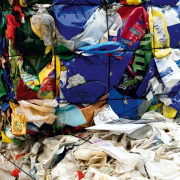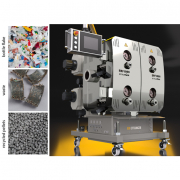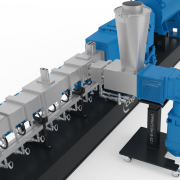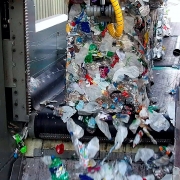Plastic Sorting with Terahertz Spectroscopic Imaging
UK-based company Vanden and Oxford University collaborate on advanced plastic recycling technology.
As reported by Vanden Recycling, the internationally active company is supporting Professor Michael Johnston at the University of Oxford’s Department of Physics to tackle one of the most pressing challenges in the recycling industry: identifying and sorting complex plastic waste with greater precision. “This partnership, supported by the UK Research and Innovation Engineering and Physical Sciences Research Council (UKRI EPSRC) through an Impact Acceleration Account, brings together academic excellence and industrial experience to accelerate science-driven innovation in plastic recycling,” a press release underlined. “The initiative is spearheaded by Vanden’s Technical Director, Beril Baykal Yesilırmak, and aims to translate advanced laboratory research into practical solutions that can be deployed across recycling infrastructure in the UK and beyond.”
At the core of this partnership is terahertz spectroscopic imaging. According to the information, unlike technologies such as Near Infrared (NIR) or Fourier Transform Infrared (FTIR), terahertz imaging would be able to:
- “See through all colours of plastic (including black) overcoming one of the biggest limitations of conventional systems.
- Penetrate multilayer packaging to analyse internal structures and chemical compositions.
- Detect signs of degradation and embedded contaminants, offering deeper quality insights.
- Deliver high-speed, 3D imaging in real-time, supporting automated, inline industrial sorting systems.”
These features would make terahertz imaging an ideal candidate for enhancing the efficiency, accuracy, and economic value of plastic recycling operations, Vanden pointed out. The company’s experience in global markets would mean that they are well-positioned to provide real-world examples of the reality these barriers present when it comes to building closed-loop supply chains and the wider circular economy. The objective is to develop and test scalable solutions that will ensure more plastic is captured, recycled, and reintegrated into the supply chain.
The potential benefits
The partners are convinced that the impact of this project could be transformative not only for the UK recycling system:
- “Improved sorting accuracy will boost the quality of recycled plastics, supporting compliance with UK Plastics Pact targets.
- Recyclers will be able to accept and process previously ‘difficult’ materials, including black plastics and complex packaging formats.
- Manufacturers will gain access to higher-quality feedstock that meets specific technical requirements, supporting closed-loop systems.
- Less plastic waste will be lost, creating both environmental and economic gains.”
Globally, terahertz imaging would offer the potential to standardize “high-quality recyclate and leapfrog older technologies, especially in regions building modern recycling infrastructure from the ground up”.
vandenrecycling.com, physics.ox.ac.uk
(Published in GLOBAL RECYCLING Magazine 3/2025, Page 39)








